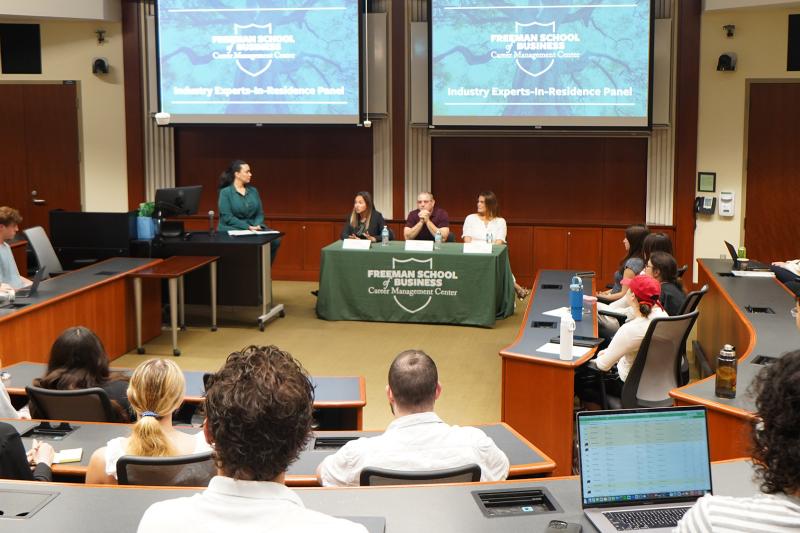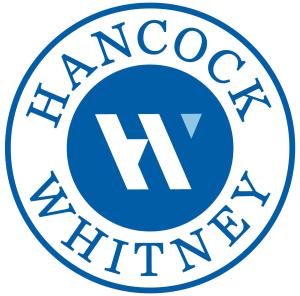
Freeman degrees are in high demand.
That’s because employers know that a Freeman degree means a candidate has been tested in real-world settings and is prepared to lead. Our signature experiential learning curriculums challenge students to put theory into practice, transforming them into proven leaders ready to solve critical business challenges with confidence and creativity.
Freeman’s rigorous academics and hands-on learning delivers results.
-
100%
-
Employed 4 months post-graduation, Full-Time MBA, 2025
-
$109K+
-
Average Starting Salary, Full-Time MBA, 2025
-
90%
-
Employed 6 months post-graduation, BSM, 2025
Forge your Future
At Freeman's Career Management Center, we work hand-in-hand with students to ensure they realize their professional aspirations. In fact, we’ve reinvented career education by taking a fully comprehensive approach to preparing students for the future.
Whether you’re job-hunting online or looking to tap into our robust alumni network, the Career Management Center is here for you, now and well after graduation.
Additionally, we connect both our students and alumni with top employers across the globe.
Your Career Toolkit
At Freeman, career management is a core component of our curriculum, and it’s built into everything our students do. Classes on professional development, coupled with experiential learning and corporate partnerships, give our graduates the knowledge and connections they need to succeed.

Freeman’s hand-picked Industry Experts-in-Residence provide personalized mentorship and industry-specific guidance, helping students navigate a challenging job market.

With decades of recruiting and talent acquisition experience, Freeman's career strategy coaches provide personalized coaching to help students discover career paths, build networks, and prepare for interviews.

Industry-centered learning communities, alumni and corporate partnerships, business hub treks, and year-round skills training give Freeman students the connections they need to launch their careers.

The Career Management Center offers a suite of premium career materials, including online trainings, career assessments, and resume templates—all available 24/7.

Handshake is Freeman’s all-in-one hub for job opportunities, employer events, and personalized career guidance.

Notable Employers Hiring Freeman Graduates
Freeman graduates consistently secure positions at top firms across industries, with competitive starting salaries reflecting the value employers place on our talent.















Career Outcomes
Our comprehensive employment reports showcase our Freeman graduates' impressive career outcomes and highlights across our undergraduate and graduate programs. View Freeman's employment reports across all our programs and degrees.
- Employment Rate: 100% with 4 months post-graduation
- Average Starting Salary: $109,000+
- Read the latest Full-Time MBA Employment Report
- Employment Rate: 100% employed 6 months post-graduation
- Average Starting Salary: $72,000+
- Read the latest Master of Finance Employment Report
- Employment Rate: 100% employed 4 months post-graduation
- Average Starting Salary: $80,000+
- Read the latest Accounting Graduate Programs Employment Report
- Employment Rate: 100% employed 3 months post-graduation
- Read the latest Master of Business Analytics and AI Employment Report
- Employment Rate: 93% at 6 months post-graduation
- Average Starting Salary: $99,000+
- Read the latest Master of Management in Energy Employment Report
- Employment Rate: 90% employed 6 months post-graduation
- Average Starting Salary: $78,000+
- Read the latest Bachelor of Science in Management Employment Report
Student Success

I appreciate how Freeman works closely with students to help them pursue their goals and take actionable steps toward their career plans. The support and resources here make me feel confident that I will be successful.

This hard work paid off when I secured my internship, which was particularly exciting because it perfectly combines my two passions: Finance and Real Estate.

I'm most proud of my marketing portfolio. My portfolio is a reflection of the hands-on experience I’ve gained through coursework, internships, and personal projects.

I chose to pursue my MBA to sharpen the skills I needed to advance. What drew me to Freeman was the small class sizes and the chance to build real relationships with my professors and classmates.

I chose the Freeman degree in business analytics because of my background in psychology and behavioral sciences, I knew I wanted to take that and go into the business world.

I learned that networking is just as crucial as academic knowledge. Freeman provided numerous opportunities to engage with alumni, peers, and faculty, allowing me to expand my network.
Recruiting Tomorrow’s Business Leaders

At the Freeman School of Business, we are proud to produce graduates who are well-prepared for the demands of the modern workforce, and we are committed to helping you find the perfect talent for your organization.
We offer multiple avenues for employers to engage with our exceptional students.
